|
I have to admit, it's the first time I've heard this song but it struck me as very beautiful. Suitable for weddings for sure. Hope you will enjoy it! Score: https://www.sheetmusicplus.com/title/the-oxford-book-of-wedding-music-with-pedals-sheet-music/3612167?aff_id=454957 I have played this piece using Velesovo sample set by Sonus Paradisi of Hauptwerk VPO. If you like my music making, you can support me on Patreon and get free organ CD's at https://patreon.com/secretsoforganplaying
Comments
Vidas: Hi guys! This is Vidas.
Ausra: And Ausra. V: Let’s start episode 554 of Secrets of Organ Playing Podcast. This question was sent by Sjouke. And he writes, Hello Vidas, It has been a while since I wrote to you, maybe last spring. My memory is not that great anymore, as we get older it seems that is one of the things that seems to stand out more being forgetful that is. My question to you is this, quite a few years ago I was pretty good playing fantasy and choral by Jan Zwart, Translation. A mighty Fortress is our God, you may not know that piece for he was an outstanding organist and composer as well, but getting back to my problem and question, I just picked up that piece again and I found something quite shocking that I have forgotten how to play that piece of music totally. For about a week now or a little more, I am practising this piece but I do not seem to be getting anywhere. Just as I think I am getting it together again I come back the next day, it is as though it is back to the first day again. Now to be fair to you and your wife, I suspect I have had the suspicion of having had a few minor strokes, not noticeable on my speech, but more so I forget so many things as though I am really out of it and that usually lasts a short time a couple of hours, but it usually comes back but not in my organ playing I am afraid to say. I had it once that I got up one Sunday morning and had to play, practised all week and got up Sunday morning did not know what I had practised, till I looked at my notes and wonder if I really did practice all that I had written, I noticed in my playing, it was not all that bad, I do not think anyone else noticed it, but I did. But what I want to know is that before mentioned piece of music will I be able to get it back, I am starting to lose hope. ~Sjouke V: So Sjouke...probably this problem is related to his strokes, right? Because memory loss is one of the symptoms, right? A: Yes, yes. V: Could be long term or short term. I’m not a physician of course, but I suspect that might be the case. When a person practices a piece of music one day and completely forgets the next day. A: Well, yes, but when he talked about A Mighty Fortress is Our God, he shouldn’t so surprised, because he hadn’t practiced that piece for a few years. And even for a professional, and even for a good professional, if it’s a difficult piece and you come back to it after a few years, you might have to relearn it at all. V: The real test would be to learn a new piece, not an old one. And then come back to it, a month later, let’s say, and see if he can forget it or can remember it, right? Because Jan Zwart’s A Mighty Fortress, as you say, was learned a few years ago. To me also, it would be very difficult to come back to it, depending on the level of difficulty of course. But if it’s a difficult piece for my own level, then I have to spend let’s say, at least a month for it. Maybe he worries too early about it. Maybe he just needs to spend more time. A: More time. Yes. And what I could suggest for Sjouke, he might record what he’s practicing. And then if he will not remember what he did last time, he might listen to the recording. He needs, you know, he’s taking notes, but I think sometimes I think a recording might be better. Because sometimes you cannot describe on the paper what you have learned and what you have done. But if he would listen to what he can play, let’s say, yesterday - it might make things easier for him. V: You’re right. It is said that a picture is worth a thousand words, so how many words is worth a recording? A: Yes, and he might record the next practice and then compare those two rehearsal sessions, and see how things sound. But of course, if each, we all sort of have to overcome some obstacles. It’s not an easy thing, especially after a stroke. And in general, sometimes people lose their confidence about things. For example, yesterday, my mom threw away the old socks of my father. But she didn’t tell him about it. And then she left, she had some business outside of the home, and my father was left alone, and he is usually not very good about finding his clothes. V: Who is? A: Well, I guess many men are not good at this kind of expertise. V: Including me. A: Yes. But my father started to look for his socks. He knew where he placed them, but could not find them in that spot. So he kept searching throughout the entire place, and finally he decided to look at the refrigerator, maybe he put them in there! V: Really? A: Can you imagine that? V: He looked in the fridge? A: I think it’s hilarious, but on the other hand, it’s very sad. Because he lost his confidence. V: And did your mom confess? A: Yes, she told him after she came back, but I asked her why she didn’t tell him that she just threw them away, and she told, I forgot about it, so. V: Funny. A: What can you do, you know? V: Yeah, it’s funny when you say that. A: But it’s not funny when I’m thinking about my poor father looking for his socks for over an hour, and looking at the fridge. V: Yeah. I was thinking about something to say while you were sharing that story, and I now remember what I was meaning to say. That the fact that Sjouke still practices is very good. That if he stopped practicing since he lost hope, and said, “I’m not making any progress and it’s not working,” then I think his memory might be even worse, right? Even though it seems like he’s forgetting things, it’s still better than not practicing, yes? A: Yes, I believe it, yes. I believe that sometimes not the result is the most important, but the process. And the process of practicing might be really beneficial for Sjouke. V: Mm hm. And when you get into a routine, this routine is something to look forward to every day. It gives sense of security for a person. Sense of meaning, purpose. And at this age in his life, this is very important. A: I think so. V: Ok. This was Vidas A: And Ausra. V: Let us know how your practice goes, guys. If you have similar problems and you keep forgetting things, maybe organ playing helps you or not, we are very interested to know. And keep sending us more of your questions, because we love helping you grow. And remember, when you practice, A: Miracles happen.
Vidas: Hi guys, this is Vidas!
Ausra: And Ausra! V: Let’s start episode 509 of Secrets of Organ Playing Podcast. This question was sent by Diana, and she writes: “It’s difficult for me to know how much time it’s best to leave for learning new music and how much time - for refreshing previously mastered material. Most often I spend too much time on new pieces and too little time - on pieces learned earlier.” So, Ausra, do you know Diana from our Unda Maris studio? A: Of course I know her. V: Yeah, she is now practicing various manualiter pieces, namely Chorale Harmonizations from Krebs’s “Clavier-Übung”, but only outer parts—soprano and the bass—and she is now starting to practice Bach’s inventions, and in addition to that, she is transcribing fingering and pedaling from Lemmens’s “Short Trios” and playing them, as well. So, it depends on her choices, probably, what she needs to do on the goals, right? A: Sure, because from her question, of course, I know her personally, but if I didn’t know her, I would still understand that she is just a beginner, because usually this is the kind of question that might arise from a beginner. Because, for an experienced musician, it’s clear that it’s impossible to keep under your finger all the repertoire that you have ever learned all the time. V: Impossible? A: Yes. Well, unless you have learned only maybe… I don’t know... V: ...five pieces… A: ...90 minutes of music, then yes. But you know, if you have mastered hours and hours of music, then I think it’s impossible, and it’s not your goal to keep everything under your fingers all the time. Then you will have just played from morning until night every day. V: So probably, for beginners like Diana, her goal should be to learn as much new music as possible. Right? A: Yes, I think so. I think she would benefit more from that after just repeating the old stuff. Of course, she needs to think what kind of pieces she liked from her repertoire and she would like to play in the future, that has some artistic values to her, and maybe to play them time after time. But I think her main focus needs to be learning new repertoire. V: It’s like for babies, right? Babies grow up so fast, and for example babies’ clothes no longer fit them after a few months. Is that a good comparison? A: Well, yes, I think it’s a good comparison. I would never think about that myself, but yes, you could say it like that. V: So Diana is like a musical baby, and she needs to change her clothes constantly—musical clothes. A: Repertoire, you mean. V: Yes. A: So, what about you? How much repertoire is under your fingers, for example, in a given moment? V: Well, I’m different from most of my organists that I know—my friends, because I improvise in public, and that’s a big difference from just playing something that is written and keeping that under your fingers. So I’m generally thinking about learning new music for my upcoming recitals if I’m planning something to play from the repertoire, not only from improvisations. But right now, I have two recitals coming up which are improvisations, two recitals with you which are organ duets, or four duets, actually—two in Lithuania and two in other countries—and then some organ demonstrations, as well, so I have to be constantly ready to play in public, basically. My situation is different from most people, I think. A: But I guess if you are an organist and you are somehow related to the church, even if you don’t have a regular position, or to the universities, I think you need to keep some of your repertoire ready at any time. So maybe while learning new and difficult pieces, you need to have sort of a basic repertoire that you could be ready to refresh right away if you would receive any calls that you need to replace somebody and to play for some occasions, such as weddings, funerals, Mass… V: A collection of short pieces. A: Yes. V: Two or three minutes each, or even one minute is okay, probably, for starters. So, it reminds me of the examination requirements of the American Guild of Organists, where they have this test for the service playing certificate. They have requirements to play a few preludes, a few offertories, a few postludes, and a few communion pieces, and a few funeral pieces, and a few wedding pieces. So maybe a total of twelve pieces for this test. And for this occasion, maybe if you’d add six categories, so one or two from each category would be a good place to aim to learn for your constant repertoire. Don’t you think? A: Yes, I think that’s a good suggestion. V: Until you become a good sight-reader and can sight-read this kind of music on short notice. Okay, this was Vidas, A: And Ausra! V: Please send us more of your questions; we love helping you grow. And remember, when you practice, A: Miracles happen!
Vidas: Hi guys! This is Vidas.
Ausra: And Ausra. V: Let’s start episode 525 of Secrets of Organ Playing Podcast. This question was sent by Roland, and he writes an answer to my question, how is his organ playing going on these days? He writes, Very well thank you. As I studied in the Netherlands and before that in Austria I was nervous of becoming too one-sidedly Dutch/Germanic in my repertoire and my approach, so am now preparing French repertoire and have tuition in Paris with Prof. Cauchefer Choplin (with whom you have recorded the interesting interview) in the coming period. V: So, Ausra, it seems that Roland wants to now become more balanced organist, not only focusing on the German side of the repertoire, but also the French side of the repertoire. First of all, before you say something, do you think that German and French sides of the organ historical playing schools are the only ones that needed to be taken into consideration? A: No, that’s what I wanted to say. Because I think that the sort of beginning of music itself is not in Germany, and it’s not in the Netherlands, it’s not in France, it’s in Italy, probably. V: Yes. A: So that’s, you know, you should consider Italian school as well. All those Frescobaldi pieces, and other masters. And there is also Spanish school, which is also fascinating with its chamades. And music, especially the baroque music was quite polyphonic at that time. V: Yeah. A: So it’s also worth of consideration. Plus, also English tradition - all those virginalists. Of course, if he knows the Netherlands music very well, so went through Sweelinck, of course he gets an idea of English virginalists. So, I guess sometimes we spent too much focusing on these two countries: Germanic and French. V: But, professor Cauchefer Choplin is a renowned figure when it comes to improvisation, for example, and French repertoire, so it will not hurt him in any way. Obviously, it’s very nice that he has listened to the podcast conversation with Professor Sophie Veronique Cauchefer Choplin, that I recorded. I think it, at the beginning of the time when I was just starting doing podcasts. A: Yes, I remember that time when you were taking an interview. V: She was on the jury of Ciurlionis International Organ Competition in Vilnius four years ago. A: That’s right. V: Which will start also in two weeks I think, or less than two weeks, almost in a week. So, we will try to also to listen to some of the organists, and maybe to interview some jurors too, if they agree. A: Sure. And you know, talking about Roland, I think it’s important when you are study, during your study years, as he now obviously is, to experience as much countries, and to try as many instruments and as many traditions as you can. But I guess at some point in your life, you have probably to choose which area will be the area of your concentration, of your main focus. V: Do you think it’s necessary to do that? A: Well, I guess if you are sort of like freelance musician, then probably not. But if you consider to work, let’s say in the university, let’s say in United States, then yes, I think it’s necessary. Because when I think about any professor back in the States, each of them would have their main focus of studies. Don’t you think so? Because I don’t think it’s possible to know everything in depth, because organs, there are so many countries with different traditions and so many organ composers, and such a wide range of repertoire starting from the Middle Ages and finishing nowadays. I don’t think it’s possible to be equally good and knowledgeable in each of those spheres. Don’t you think so? V: Well, there are a few ways to be successful in organ playing, not just one. To specialize, yes, this is one. One way to become the best in your area, in the small area, right, rather small. For example, you discover a very curious composer who didn’t receive much appreciation when he lived, or perhaps he is living now, and you could record everything that that composer wrote or writes. Become the go-to person, the expert in this music, right? And you will be known for that very, very narrow topic. That’s what Ausra is talking about. Another way is to become the first. Become the first inventor of something. For example, let’s say Harald Vogel, right? A: Yes. V: I don’t know if he was the first, but to me he is the first in re-energizing focus and attention to early organs in… A: Ostfriesland. V: Yes, area of The Netherlands and North Germany called Ostfriesland, with fantastic instruments and music from the manuscripts, tablatures, early performance techniques. Maybe there were other people involved in that, but he’s the most prominent figure in leading this movement - Harald Vogel, right? And what’s the third one? A: I don’t know. You wanted to tell us, so tell us! V: Okay! A: Or you forgot while talking about two others. V: The third way is to become different. Different from anybody else that you know. For example, okay - Guillou. Jean Guillou - is he an expert in the French music? Yes he is, but so are many others. So what is he, or what was he most well-known for? Improvisations, and his own compositions. A: But many French organists are very famous for their improvisations, so how is he different from others? V: His style is different from others, you see? A: Well, yeah… V: You know that? A: I know that, yes. V: So be yourself. You can easily be yourself. But the problem is that you have to be yourself or stick to one particular path, one, two, or three, for a long time so that people will start noticing you. A: True. V: Because at first they will ignore you, then they will laugh at you, then they fight you, and only then you win. A: Yes, and I think the worst thing that might happen, that after graduation you play only the pieces you learned during your study years. I know many organists like that. Especially in Lithuania, that we have learned, let’s say 20 pieces during the study years, and we keep playing them all through life, not trying anything new. I guess you just have to keep your curiosity going, even after graduation. V: To keep a beginner’s mind, always be prepared to accept that you don’t know everything. A: Yes, I think that’s the main, the most important thing. V: And be hungry for, learning new skills. Okay guys, this was Vidas. A: And Ausra. V: Please send us more of your questions. We love helping you grow. And remember, when you practice, A: Miracles happen. SOPP519: I’m learning quite a bit of French music to play during upcoming visits to Paris10/25/2019
Vidas: Hi guys! This is Vidas.
Ausra: And Ausra. V: Let’s start episode 519 of Secrets of Organ Playing Podcast. In this episode, we would like to thank Richard Knot, who sent us his generous donation of £10. And he wrote: Dear Vidas and Ausra. Enjoy a coffee on me!! Best wishes, Richard So then, I wrote to him a message thanking Richard. I wrote: Dear Richard! Thank you for your generous donation... It's very kind of you. How is your organ playing going? ~Vidas And he wrote: Dear Vidas, I thought you’d both like a coffee! My playing is going ok thanks, although I’m finding it harder to learn new things quickly and efficiently. I’m learning quite a bit of French music to play during upcoming visits to Paris. Although I have an excellent teacher from the Royal College of Organists, I’m thinking of joining your Total Organist scheme to give me more skills for good effective practising. It’s a lot of money though. V: And I wrote to him: Thanks, Richard! Having a goal to be prepared for organ trip in Paris is an excellent motivation. If you can wait until Thanksgiving, Total Organist will have a 50% discount. To which he replied: Thanks for letting me know about that, Vidas. It’s very good of you. I can certainly wait for Thanksgiving and your promotional emails! A: Well, so this is what I like about this message that Richard translates that even though he surely had professional training with a good professor at a well-known institution, he still wants to improve himself. And that’s what I think is very important for each of us. Because no diplomas, no the best professors can set you up for entire life. You still need to improve on yourself throughout your life. And you still need to learn new things and to find out about new things, to find new ways, to try new instruments. V: And this is especially nice if he goes to Paris. A: Yes. V: In Paris, he will find many unfamiliar instruments, perhaps famous instruments. And if he ever has a chance to try them out, inevitably the time comes when he needs to play something. And playing something well on these instruments makes the entire trip more enjoyable. And then... A: True. V: ...then that’s where we come in, helping people reach their goals, and helping them achieve better results than they would be doing on their own, alone. So, we’re very grateful to Richard who enabled us to have some coffee. A: Yes, we will. Maybe next week. V: Yes. Coffee is a good drink. We drink decaf coffee, right Ausra? A: Yes. We are very Americans in that way. V: Yeah. A: Almost nobody in Lithuania understands us. We are just asking to them, Why do you drink coffee at all, if you drink decaf? But now there are more and more places where we can get coffee like this. V: Yeah, lots of younger generation people are starting to convert to decaf tribe. A: That’s right. And plus, in Vilnius, we have lots of foreign tourists who also comes from various countries, and they want to drink decaf. Not all though, of course, but we get, I think, more and more American tourists. V: You know what I was surprised about, when we visited various European countries and sat in restaurants? Yes, you could order decaf coffee, but ordering alcohol-free beer was very difficult. Finding a place with… A: Non-alcoholic. V: Non-alcoholic, yes. A: Yes. Well, I guess Europe is drinking a lot alcohol. Which is maybe not so bad, if you are from the southern part of Europe. I don’t think they have so much trouble with alcoholism as we in northern Europe have. There are all these nasty jokes about Swedes, or Finnish people, you know, taking the ferries, to, for example, Estonia. And then not to be able to get out, because the alcohol is cheaper on the Estonian ferry, so we drink a lot. V: I think one Finnish travel agency got into trouble by advertising trips to Italian as a cheap alcohol place. A: And in a way, it’s not like it’s really cheap, but it’s much cheaper still than in Finland or Sweden or other Scandinavian countries. But I guess there is something, I don’t know, something about our genes, that we are all in the northern part of Europe, well, don’t hold the alcohol very well, and become alcoholics way too often. Compared to, for example, Italy or Spain and France. V: But you recently heard a theory that if people lived 300 years, we would all become alcoholics at some point. A: Yes, there is that theory that there is a sort of limit of alcohol that you need to drink, and after that, you will become an alcoholic. So even if you drink very little, like for example, Vidas and I do, if you would live for 300 years, you would reach that limit of becoming an alcoholic. V: To which I might reply, if we live for 300 years, all our subscribers would become organ playing virtuosos. A: Yes. V: Every single one of them. A: And I just thought about how many organ, maybe I could learn entire organ repertoire that’s written if I was to live for so many years. V: Oh, yeah - we would need to write more! A: Sure. V: I wrote two pieces this week already. A: I don’t think you would feel the lack of organ music, because there are nowadays composers that write a new piece every single day. V: It’s a good habit, though. A: Well, yes. You know, before that, I thought maybe you don’t need to bother and to write just, let’s say, average music. But I read a book by Elizabeth Gilbert, Big Magic… V: Yes. A: About living creative life, and she said that even if you write, she talks mostly about writing literature. If you will create on a regular basis, then there is a chance that out of your, I don’t know, 10 books, one will be really good. V: Mm hm. A: Maybe at least one would be so good, but in writing them, you will develop yourself as a writer. Improve yourself as a writer. V: And she’s known for saying there is a book you need to publish, and there is a book you need to write, and those two books might be completely different books. A: Yes, and this is so exciting when I’m starting to talk about her, because I read this book on his recommendation. V: My social status has improved, right, Ausra? A: Yes. V: Nice. I’m starting to be an influencer. A: That’s right. So if I would be going to Paris to try different organs, I would probably bring with me Cesar Franck’s L’Organiste. I think it’s an excellent book, if you would just want to get familiar with French organs. V: Mm hm. It’s easy enough to sight read, if you can. But it’s beautiful enough to be able to sound authentic on these instruments. A: Yes, and plus, because in Paris, you wouldn’t find authentic Baroque organs. They were most of them built till right after the Revolution, because so many wonderful instruments were destroyed - Baroque instruments - were destroyed during the Revolution. So I guess, the Romantic or Modern music would work much better on those instruments. V: Mm hm. And by the way, we have prepared many suites by Franck from this collection of L’Organiste with fingering, and even registration suggestions for pipe organs. Because originally, the registration suggestions were written for French harmonium, which are different. We had to convert them. So you can check them out. Okay, guys. Very interesting discussion today. We hope this is useful to you. We would like to thank again to Richard for his kind donation. And now, we will go to have some coffee. A: Yeah! V: Please send us more of your questions. And remember, when you practice, A: Miracles happen. Just before I was getting ready to water my hedge this morning, an organist friend of mine contacted me asking if I know of any Latvian organ music scores and music from the Russian region of Kaliningrad. He has some organ music by Mikalojus Konstantinas Ciurlionis, who was the most famous Lithuanian composer and painter and for the Estonian part he will be playing a piece by Arvo Part. So I looked at my library and I found two volumes of organ music published by Barenreiter. Latvian organ music volume consists of pieces by Johann Gottried Muthel, Georg Michael Telemann, Adams Ore, Nikolajs Alunans, Jazeps Vitols, Jazeps Medins, Alfreds Kalnins, Peteris Vasks, Aivars Kalejs and Atis Stepins. Estonian organ music volume consists of pieces by Rudolf Tobias, Artur Kapp, Mihkel Ludig, Peeter Suda, Alfred Karindi and Edgar Arro. From the Lithuanian side I also found a recently published volumes of organ music by Mikalojus Konstantinas Ciurlionis and Ceslovas Sasnauskas: There is a collection of Lithuanian modern organ music "The Road to Silence" which I can't find easily at home and I hear National Association of Organists will be issuing a new edition of complete organ works of Juozas Naujalis. In "The Road to Silence" there are pieces by Giedrius Kuprevicius, Jeronimas Kacinskas, Algirdas Martinaitis, Onute Narbutaite, Vidmantas Bartulis, Donatas Prusevicius, Egle Sausanaviciute, Feliksas Bajoras, Gracijus Sakalauskas and Jonas Tamulionis.
Good luck to anyone who is going to play some organ music from the Baltic states! Now I have to run to grab some lunch and practice organ duets in the church with Ausra. If you know of any other collections from this region, please let me know. Dear friends,
Yesterday I asked our community if anyone could identify this piece. Dan would be very happy for your help. Less than 2 hours have passed and I have received the following message from Bernard: Hello Vidas The name of the piece about which Dan is inquiring is: Scherzo by Percy Whitlock, from his ‘Five Short Pieces’. Published by OUP. Best wishes Bernard I'm very grateful to Bernard for providing the answer and I'm sure Dan will be very happy... In fact, he wrote to me: Ah interesting. Thanks for that Vidas. Very cool. This shows me the power of our community in helping each other. Collectively we are much smarter and stronger than anyone is individually.
Vidas: Hi guys, this is Vidas.
Ausra: And Ausra. V: Let’s start episode 394 of Secrets of Organ Playing Podcast. This question was sent by Don and he writes: “Hello Vidas, Would you please provide your ideas on how to "identify a piece of organ literature by level of difficulty" and provide actual titles of pieces so that we, as organists, can make choices on our own when we want to study a new piece of literature. Thank You, Don” V: What do you think Ausra, do you think it is easy to identify levels of difficulty? A: Well I think that’s a nice question. You could write a book about it because it’s sort of what Don wants that you would provide a list of pieces with level marks on them and it takes actually a lot of time. V: Luckily we have American Guild of Organists (AGO) and if you go to their web site https://www.agohq.org and click on EDUCATION and then click on Educational Resources there you have interesting things. Basically these are lists of all organ compositions that for example Jehan Alain created, Johann Sebastian Bach, Guy Bovet, Maurice Durufle, and others but what I found very interesting is Graded Repertoire Documents and there you have of course not many but a few of them; Bach, Langlais, Messiaen, Rorem, and German music after Bach meaning romantic and classical composers too. For example if we click on Bach and you have this possibility to see a document created by Delbert Disselhorst, who was the professor of our professor Pamela Ruiter-Feenstra at Eastern Michigan University and there he has a list of most or all of Bach’s works arranged into four levels. So for example in level one you have Neumeister Chorales, of course Eight Little Preludes and Fugues, of course today it is thought that a student of Bach created these, not Bach himself, Pedal Exercitium, Pastorale, Alla Breve, Canzona, those are level one pieces. But of course they are not suitable for beginners, right Ausra? A: Yes. V: Too difficult for beginners. Beginners can only play something like a minuet when both voices move very slowly. What do you think about the smallest rhythmical value in beginner level pieces. A: I think it might be too hard for some people truly. V: Quarter-note, occasional eighth notes but with Bach you already have sixteenth notes and we advise to start with something easier before Bach and less voices than normally four. Basically two voices is the best. A: Yes but sometimes not the number of voices gives difficulty too because there might be some really demanding pieces even written in two voices for example duets for the third part of Clavierubung. I wouldn’t see these pieces for beginners even though they only have two voices. V: Let’s see if they have those here in the list in which case they should be somewhere towards the end. Clavierubung III is in the fourth level, in the last level but he writes “Many of the manualiter settings may be studied earlier…”, right? So duets could be studied earlier but certainly not at the beginning. A: Yes, but not number one. V: So Don and others were wondering about grading their organ pieces should understand one thing that real composers created music not necessarily for pedagogical intent and even if they did in those days, 200 years ago, the pedagogical aspect was different than today. The master would write something to you and the student would play it no matter what and today the student would say “No, no, no, it’s too difficult” and the master would say “Oh you poor baby.” A: That’s right, everything has changed. V: So yes, for level one obviously we need two voices and very simple rhythms, then you can either add one more voice and still keep simple rhythms or you can do two voices but with more advanced rhythms like sixteenth notes. A: True, but again three voices not always will mean the easy composition as we have example by J.S. Bach, his trio sonatas, they are one of the most demanding pieces in the organ repertoire and they have only three voices. V: I would find this categorization quite helpful for example in terms of how many voices there are one, two, three, four, or more, we have five voices, sometimes even six in the organ repertoire. A: Sure, double pedal. V: Right. Imagine six levels and then in each level we could have sub-levels in terms of rhythmical difficulties. What’s the smallest rhythmical unit, most commonly used note. If you sometimes see sixteenth notes it doesn’t mean that the entire composition is moving in sixteenth notes, just occasionally but maybe the most common rhythmical value is in eighth notes so that would mean probably a second level with eighth notes and the first level would be with quarter notes for me. A: But still you always need to look at the tempo, what tempo the piece is written in because sometimes you could have as small note values as thirty-second for example but it still might be not as hard as it looks on the paper when it is all black because the tempo might be really slow as happens in many ornamented chorales. V: Right. All those things you have to keep in mind while selecting your new organ piece. A: And of course look at the pedal part because it still for many people pedal gives most of the trouble. V: Right. And to be considered level one probably pedal needs to move slower than the hands. A: Sure, sure, probably in half notes. V: Half notes, exactly not in quarter notes. A: Yes. V: And in level two probably in quarter notes, and level three eighth notes and maybe triplets if that’s another disposition of rhythms and meters. So I guess you can get the idea of how to calculate the difficulty of the piece that you are about to study and your own level too. A: And you also need to keep in mind the coordination problems too because for many beginners it’s easier to play on one manual and on the pedal than for example on two different manuals at the same time and the pedal. This also might make the piece more difficult or more easy or when you have to switch manuals a lot during the performance. V: Then we didn’t mention the keys and the chromaticisms. A: Sure because the more accidentals a piece has the harder it is to learn to read music. V: The same piece in C Major would have lower level of difficulty than the same piece with four sharps for example. Umm-hmm. OK guys, we hope this was useful to you. Please send us your wonderful questions and remember when you practice… A: Miracles happen. Last Tuesday it was supposed to be my regular practice at my church. My practice usually consists of pieces I'm currently working on, improvisation and sight-reading.
Some things got in the way and I had to leave before I had time to sight-read anything that day. Luckily, in the afternoon during Unda Maris organ studio rehearsal, my student Mindaugas Dulkys was playing Voluntary in D Major No. 6, Op. 6 by John Stanley (1712-1786) from England. I wanted to show him how it's done and figured I could play it in a slow practice tempo. Not only I wanted to help him, I thought, but I also wanted to sight-read something that day. Luckily, I had a video camera with me and recorded everything from the high angle so that my fingers were clearly visible as I usually do when I sight-read. Of course, I had an idea to turn it into a practice score to help other students as well. Thanks to Mindaugas Dulkys for his meticulous transcription of the fingering from my slow motion video into original edition from 1752. Intermediate level. Manuals only. PDF score. 3 pages. 4 movements: Adagio-Andante-Adagio-Allegro Moderato 50% discount is valid until February 23. Check it out here This score is free for Total Organist students. Would you like to learn J.S. Bach's Kyrie, Gott Heiliger Geist, BWV 671 from the Clavierubung III? If so, my new PDF score with complete early fingering and pedaling will save you many hours and set you on the path of success to achieve the ideal articulate legato touch naturally, almost without thinking.
Since this is a 5-voice chorale prelude for Organo Pleno registration, for most of the time, the right hand plays two voices and the left hand also has two-part texture. The pedals have a chorale Cantus firmus in augmentation (long note values). If you liked Kyrie, Gott Vater in Ewigkeit, BWV 669, Christe, aller Welt Trost, BWV 670, Allein Gott, BWV 676 or Dies sind die heilgen zehn Gebot, BWV 678 I'm sure you'll enjoy this piece too. Thanks to Mary for her meticulous transcription from my slow motion video! Advanced level. 4 pages. 50% discount is valid until February 21. Check it out here This score is free for Total Organist students. |
DON'T MISS A THING! FREE UPDATES BY EMAIL.Thank you!You have successfully joined our subscriber list.  Photo by Edgaras Kurauskas Photo by Edgaras Kurauskas
Authors
Drs. Vidas Pinkevicius and Ausra Motuzaite-Pinkeviciene Organists of Vilnius University , creators of Secrets of Organ Playing. Our Hauptwerk Setup:
Categories
All
Archives
July 2024
|
This site participates in the Amazon, Thomann and other affiliate programs, the proceeds of which keep it free for anyone to read.
Copyright © 2011-2024 by Vidas Pinkevicius and Ausra Motuzaite-Pinkeviciene.
Terms of Service and Privacy Policy
Copyright © 2011-2024 by Vidas Pinkevicius and Ausra Motuzaite-Pinkeviciene.
Terms of Service and Privacy Policy

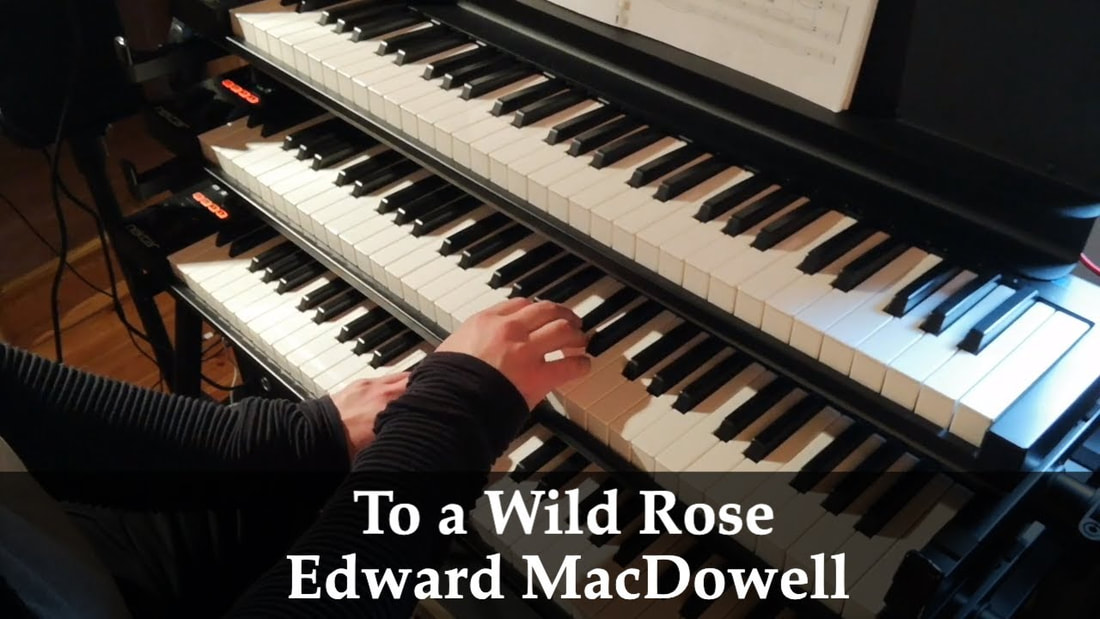
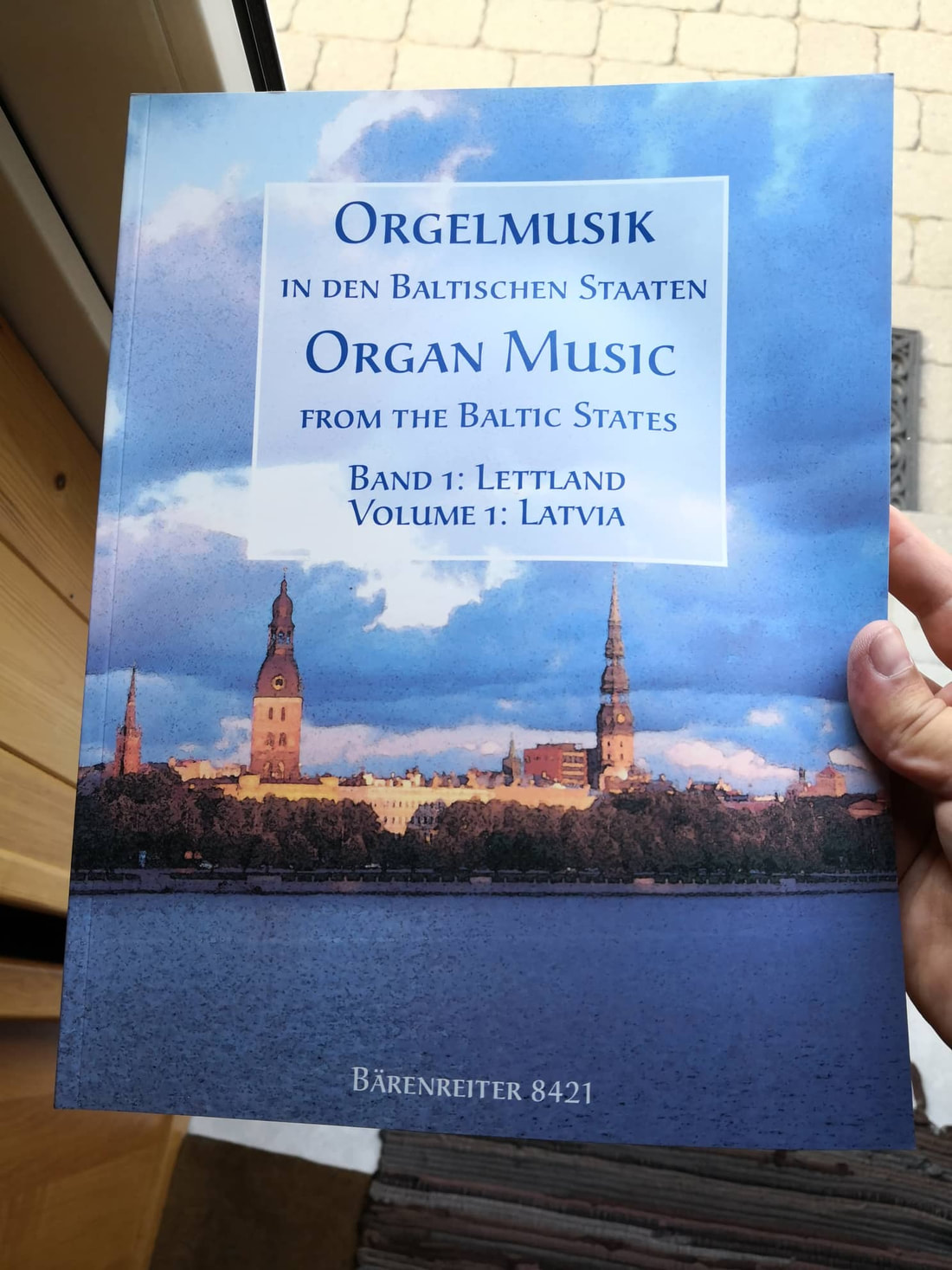
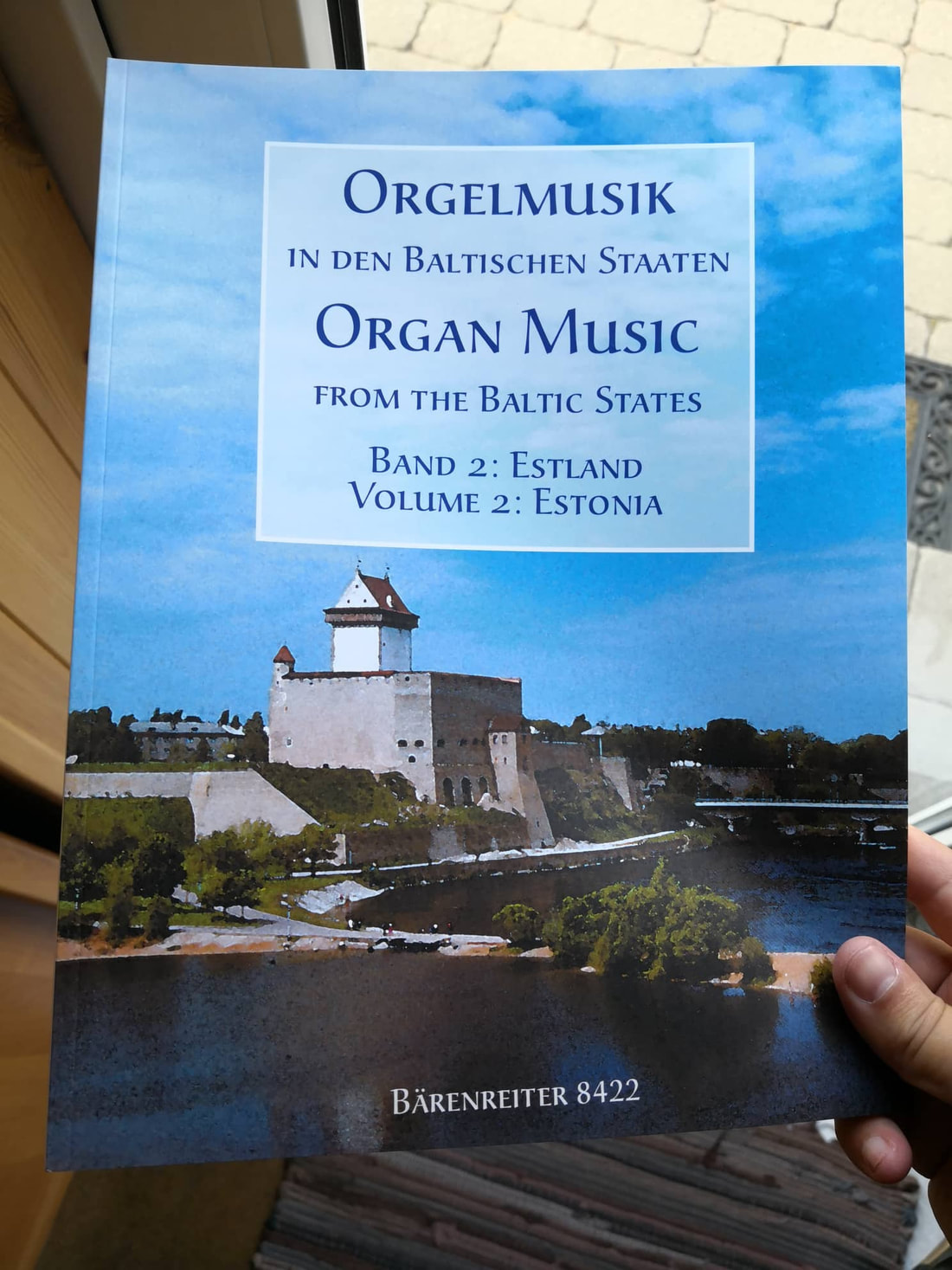
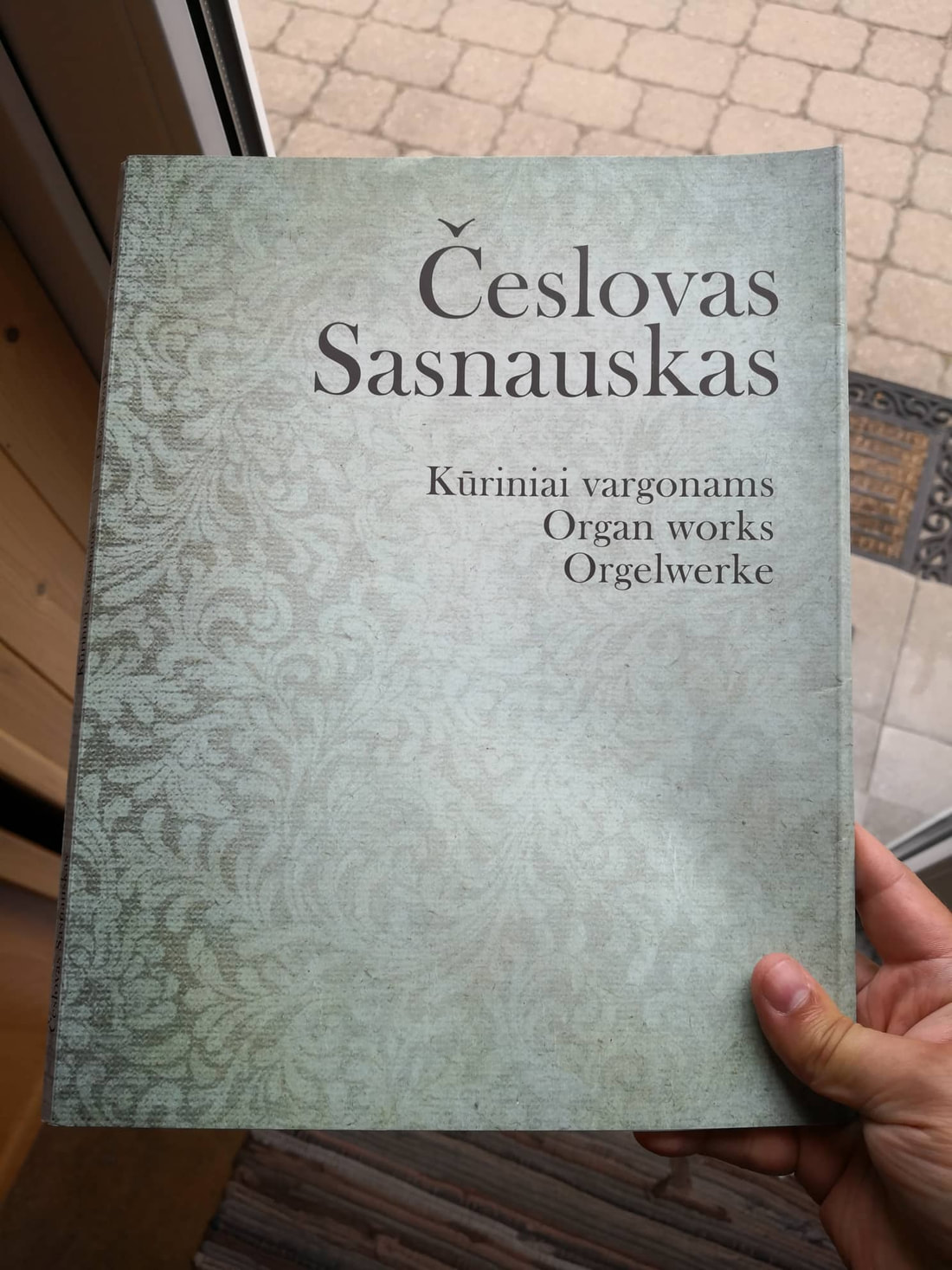
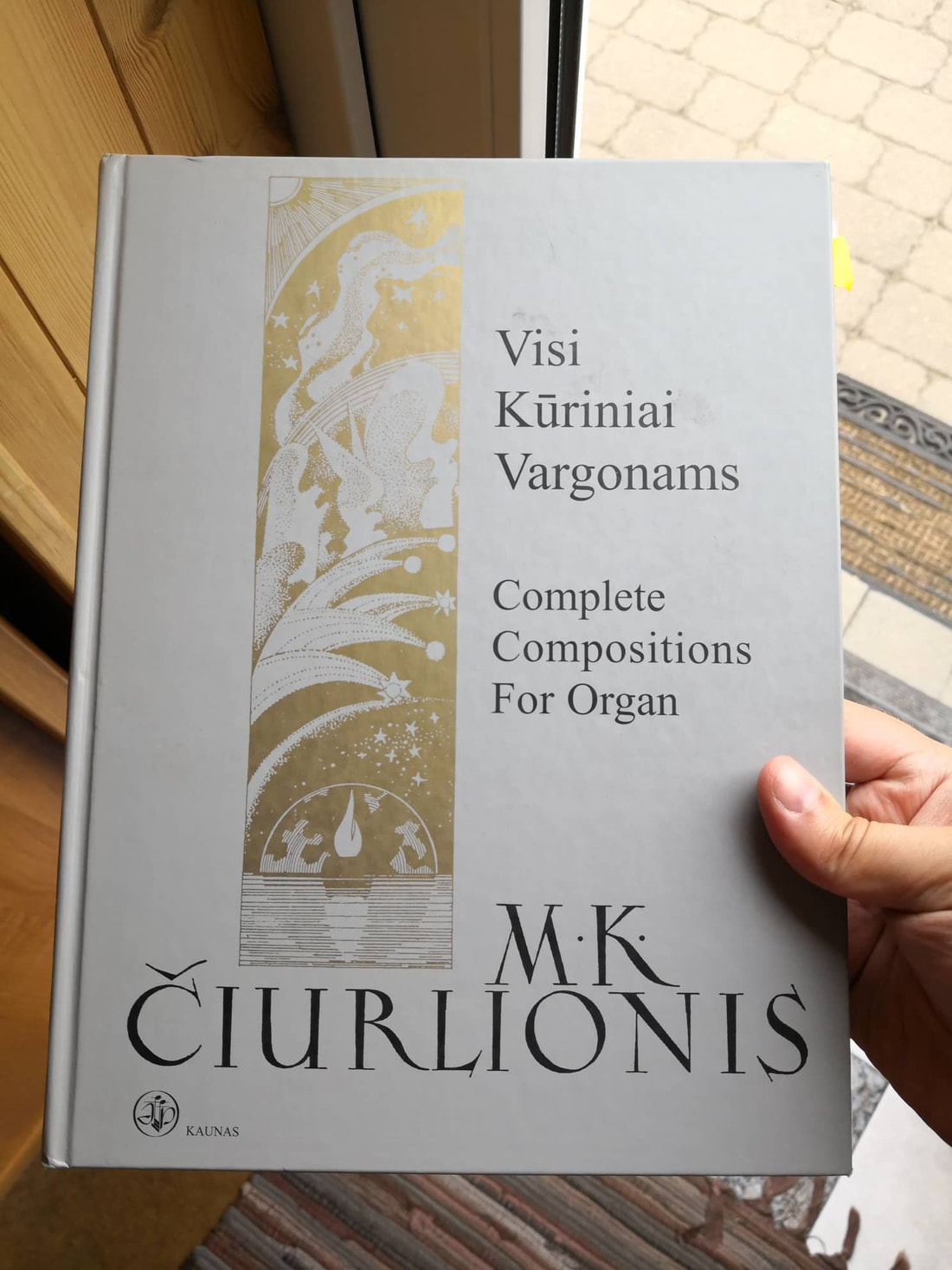
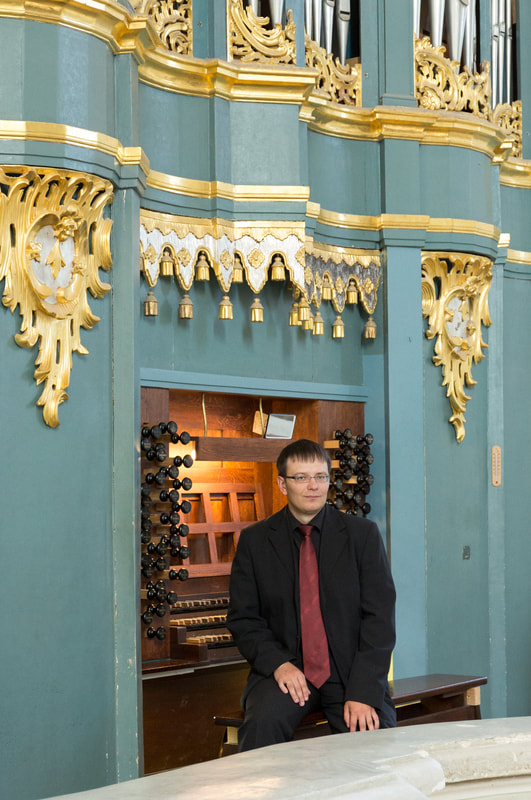
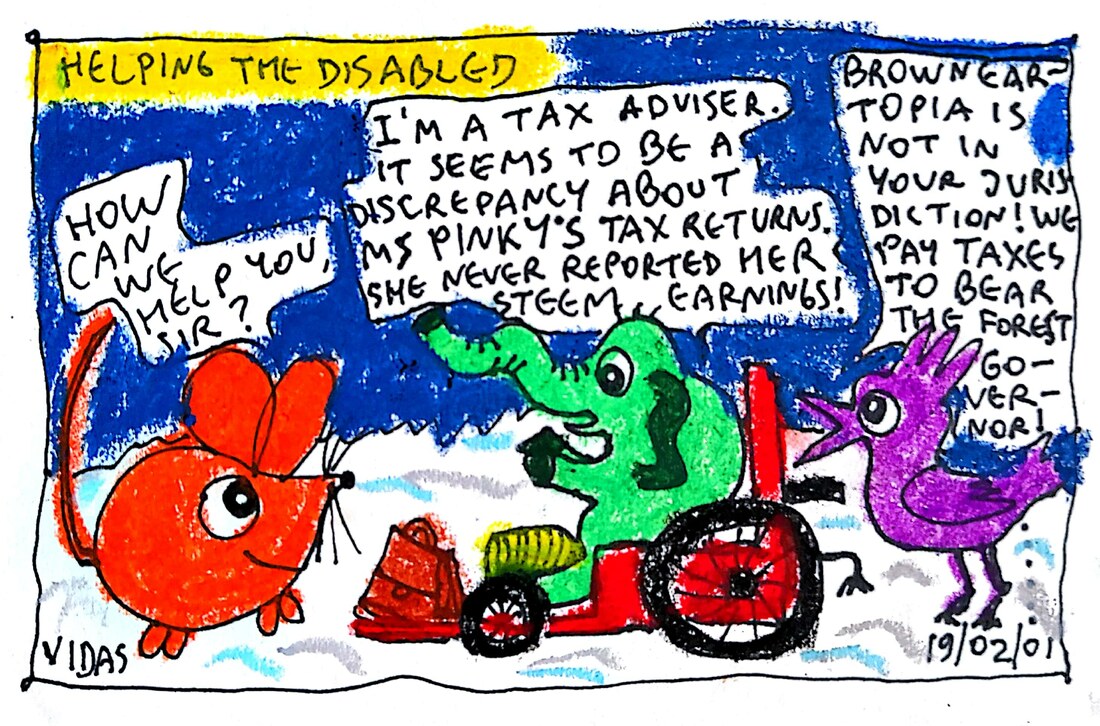
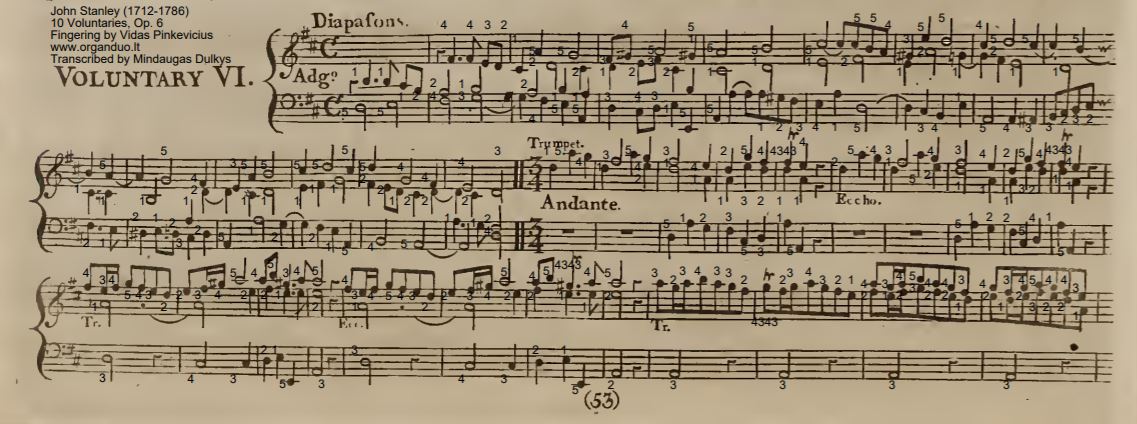
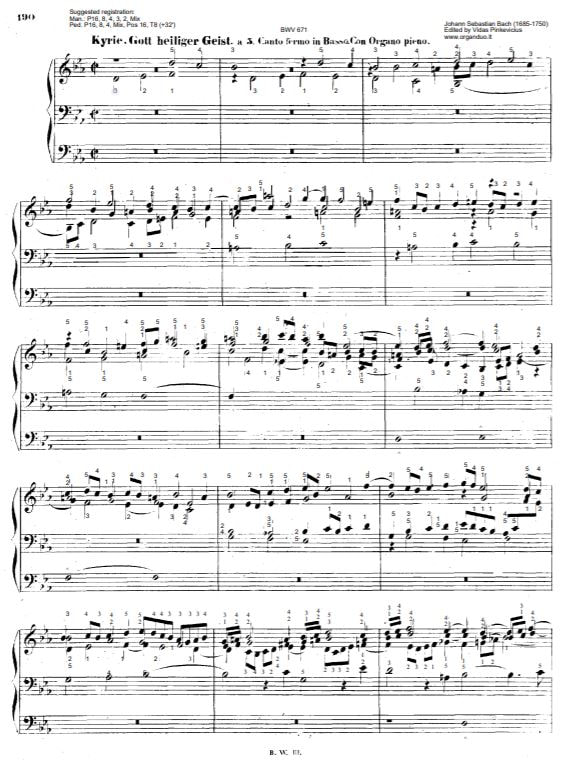



 RSS Feed
RSS Feed